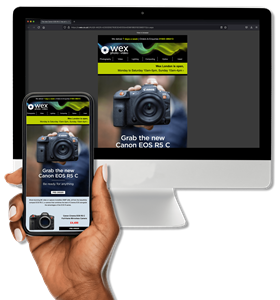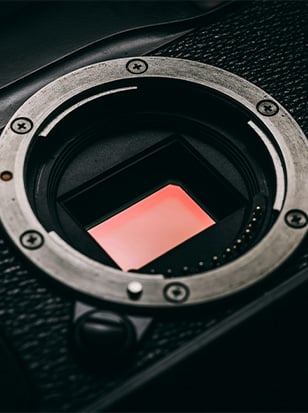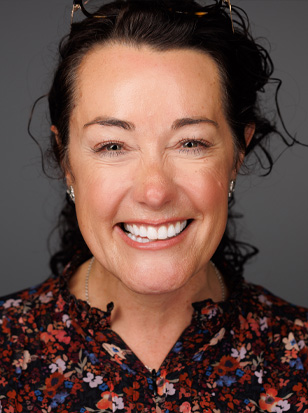
Ellie Rothnie
- Job title: Wildlife Photographer
- Website: ellierothnie.com
- Instagram: ellierothnie
- Related jobs: Photography guide, photography assistant, lighting assistant, filmmaker, video producer,
Ellie Rothnie is a wildlife photographer and Canon ambassador who before pursuing a life as a professional photographer, had a career in marketing. Today, Ellie is an internationally acclaimed photographer, travelling the world photographing all manner of animal species great and small, and her excitement and enthusiasm for wildlife photography is infectious.
As a wildlife photographer, your working pattern is dictated by the wildlife you intend to photograph. So, after a month of travelling to Hungary, Bulgaria, Greece, and sunny Bempton, I was lucky to briefly speak to Ellie before her next trip. I’m grateful to Ellie for agreeing to chat with me about how she developed her career, the decision to leave her marketing job, and her advice to those who aspire to pursue photography as a career.
Leo White: Thank you for speaking to us, Ellie. How did your interest in this field first arise?
Ellie Rothnie: My Dad introduced me to cameras from an early age. He was a keen landscape photographer and taught me the basic photography principles. We’d lay on the lawn photographing hedgehogs with his film camera.
LW: I’ve heard you refer to yourself as a “clicker”; is this where that started?
ER: Yes. I wouldn't describe myself as that now, but certainly when I was starting. For many years, I simply enjoyed taking pictures of everything; people, scenery, animals, you name it. They were just for me and my enjoyment. I liked being on that side of the camera to capture the world around me like interesting architecture or candid family shots; they’re always the best shots.
LW: Did that put you on the path to being a photographer?
ER: Not really. I enjoyed photography for the fun of learning from my Dad. But I didn't go to art college. I went to university to study geography. I suppose that was very much an outdoor degree — and being out in nature has always been my preference — but despite that, I actually pursued and enjoyed a long career in marketing, “clicking” all the while.

LW: So, was photography just a hobby on the side of your main job?
ER: Yeah, I just liked having a camera with me. Friends and family would encourage me to take more photos but I never really thought that it would one day become a full-time job. I think it was good for me to work in a different job because that allowed me to get established with my wildlife photography. It gave me an income that I could actually use to invest in the equipment that I needed; the camera, the lenses, the tripod, the gimbal etc.
LW: Was there a turning point for you in your photography journey?
ER: The marketing job was running parallel to my getting more serious about photography. And in 2004 when I went out to Kenya for a holiday and of course, I had my camera with me — the new Canon 300D. We had the opportunity to photograph Kike the cheetah who at the time happened to be quite a star of the Big Cat Diary.
I met another photographer shooting close by who was interested in my camera and I was interested in the long telephoto lens he was using to photograph the cheetah. And we just talked about photography and photographed this cheetah all day. That evening, he turned around to me and said “Ellie, you're just different from everybody. You’ve spent all day photographing with this one animal. You've just watched her. You've enjoyed being with her. You're different from everybody else who just comes, takes a picture, and they go and find the next thing.” Later on, he gave me a card and when I got home, I looked him up and thought, oh my goodness, it's Paul Souders — a renowned professional wildlife photographer.
That trip and meeting Paul was my turning point; so much so that I realised that you really can do this [wildlife photography] as a living. It combined my passions of being out in nature with my camera and being with wildlife, and it was just a case of meeting somebody who inspired me and gave me belief in myself.
LW: Can you talk about your transition from full-time work to freelance photography? Did you have paid work before that final step?
ER: It’s a big step and I think it can be easy to overthink it. For me, I had been in contact with a [wildlife photography] guiding company, helping them with their marketing alongside my day job. Over time, they asked if I would consider becoming a guide for some of their tours. Naturally, I accepted. Initially, I was doing a couple of trips a year, and that worked perfectly with my day job. I would use my holiday allowance for the trips and my salary to invest in my equipment.
But as time went on I got to a point where I didn’t have enough vacation days left to fulfil what I had been asked to do. And, it got to that tipping point where I thought if I don't do it now, I never will; so I went for it. It was 2016 when I left the corporate world and I have never looked back.
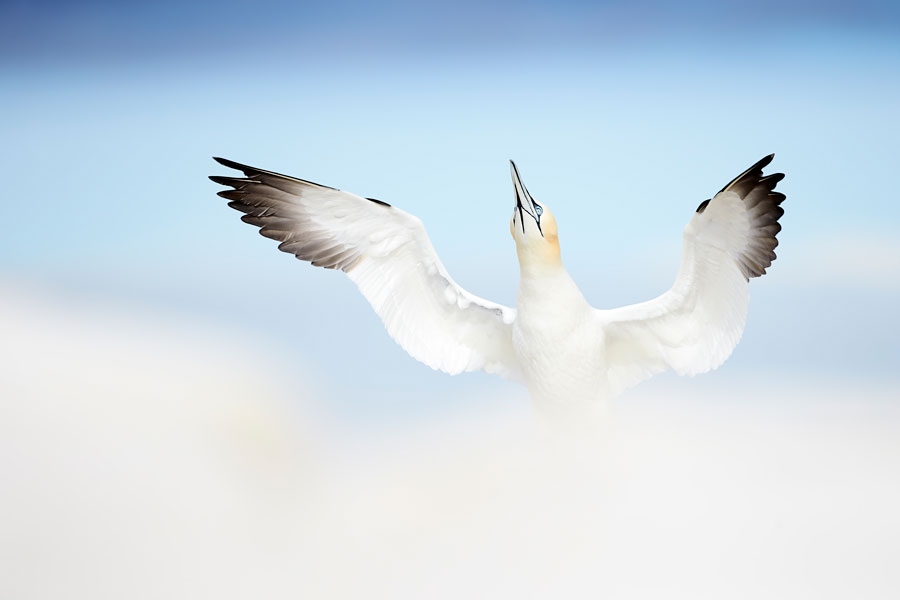
LW: I imagine there were some quite steep learning curves as soon as you went freelance.
ER: Yes, and I mean the way I describe it is, if you work in a corporate world you get one salary and you know what and when you’re going to be paid each month. But as soon as you go into freelance photography, your salary becomes a bit like a jigsaw puzzle. You earn money from different places and for pieces of work that you do. When going freelance, I was guiding but also writing for wildlife photography magazines and blogs (some for Wex), as well as doing some film work.
When I went full-time there were big changes in photography in that the stock [photo] industry had pretty much gone. Many colleagues who had been in the industry for a long time had, what was a steady stream of income, dry up overnight. I decided that I needed to remain focused and split up my time over three areas. The first was philanthropic jobs; jobs you do that you are passionate about but don’t expect to be paid, like supporting animal charities and judging competitions. Second, were the jobs that I would focus on and absolutely did want to earn an income from. And the final area was networking and building working relationships with people with whom I would hope to work with.
That’s not to say that stock libraries aren’t the “right” way to earn a living. It just wasn’t something that I desired to pursue and it’s an already very saturated market, so if you’re not already established, you may struggle to make a living.
LW: So, how did you market yourself?
ER: In various ways, but I think it’s important to know you’re producing good work and be confident in that body of work. Your photo projects are your product. My images help to promote what I'm doing and me as a hireable photographer, rather than the selling of the images themselves or fulfilling someone’s brief.
And you know, I’m often asked, how do you develop your creative style? And that's a very hard question to answer because we all see the world differently and have different perspectives. So my answer is always just to be true to yourself and to feel it from the heart. If it feels right for you, then it's right. I have always approached photography by focusing on species that I’m passionate about, and this focus helps to develop my own creativity. I would say that social media is clearly important. For me, it was a good place to share my work with people; not just in the UK but worldwide. And it can also be a good way to contact editors and people in different photographic companies. A good website is also important but just putting yourself out there and talking to other photographers is the best way.
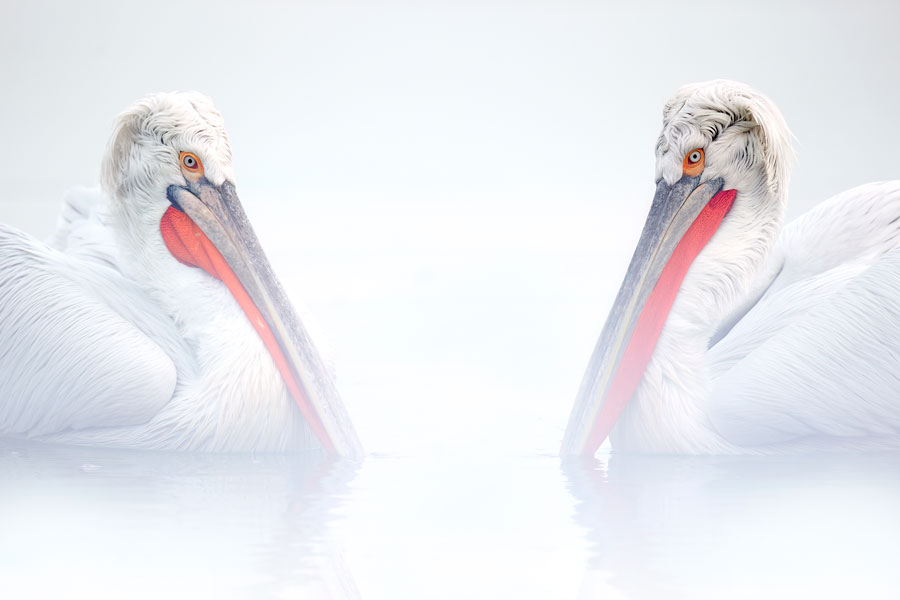
LW: I would have thought that you would receive and fulfil a brief, and that’s how you would earn a living. But I guess it doesn’t exactly work that way with wildlife photography.
ER: Generally, wildlife photography is different from other genres in that you don’t really get briefs unless they are specifically from a brand. When I started, I did have a commission from a large brand but unless you're employed by one of those organisations, that type of opportunity can be few and far between. They're very nice when they arrive, and lucrative, but not something to rely on.
So really, what you're doing is very much producing a body of images to sell your services, whether that be, running workshops, guiding trips, selling prints, promoting talks, or promoting an article; as examples.
LW: You mentioned social media. Have you felt the need to diversify by producing video content and other different types of content to meet the demands of the world that we live in?
ER: That's a great question. Regarding video content, I've approached it a bit differently. My passion for wildlife photography has thrived because I’ve followed my own creative path, not the trends suggested by social media. Modern cameras have incredible video capabilities and it has now become a personal goal to explore and learn how to do it for myself. And, over the past six months, I've been incorporating more video and audio into my work, and I really enjoy it. I have found myself using my video content as part of talks, bringing still images to life and showcasing the capabilities of my equipment. So, to answer your question, I am diversifying my content, but it's driven by my personal goals, not external pressures.
As for social media, this is just one of many marketing channels for me and it’s important to use it well. In fact, I wish I had more time for social media and for processing my still images. But generally, it’s a way of connecting with an audience and staying in touch with people. However, I don’t create content specifically for any platform. There's never a point where I think right, I'm going to take this picture for Facebook or Instagram. When I'm on an assignment or guiding a trip, it's about being present in the moment and enjoying Nature.

LW: What’s been your proudest or most enjoyable moment so far in your photography career?
ER: My goodness, there are two questions there. My proudest moment, which might be the answer you're expecting, is being appointed as a Canon ambassador. It wasn't something I set out to achieve when I went full-time eight years ago. However, to receive that recognition — after working incredibly hard through a lot of setbacks, sweat, long hours, and the resilience you need in this job — it has been the proudest moment in my photography career. I feel incredibly honoured. Canon is a fantastic company to work with and you do feel like you’re part of their family.
As for enjoyable, exciting times; wildlife photography is full of them. The unpredictable nature of wildlife, the weather, and being out in the wilderness bring about many memorable experiences. One of the most unforgettable moments for me was in Kenya, lying under a truck in a conservancy, photographing elephants with a wide-angle lens. They walked right past the truck, communicating with each other. I could feel the rumbles in my chest, resonating through the ground. It was an unbelievable experience that I’ll never forget.
And, it’s these kinds of encounters that keep my passion alive. The curiosity and excitement of each day in the field, even if I’m just observing and not taking pictures, help me learn about animal behaviour and species. Just being out there is amazing.
LW: Could you talk about some challenging moments you’ve had since becoming a freelance?
Honestly, the pandemic was a tough time for so many people and for different reasons. For me, everyone in the creative industry was working, and then suddenly, no jobs. My job involves being outdoors and taking images - it’s not just my passion, it’s how I earn my living.
It’s taken until early 2024 to fully catch up. What it did do was help me reflect on the fragility of my profession and the importance of having some savings for self-support. At the end of 2020, I had a chat with myself and decided to enrol in another degree with the Open University. I started a biology degree and completed my first year. At the time, it gave me the focus I needed and has ultimately really helped me with my career.
LW: Do you have any key pieces of advice for those aspiring to a similar career?
I think it's important to have a deep passion for certain species. It doesn’t have to be something exotic; it can be animals right on your doorstep. Read about them, but importantly go to observe them and learn from what you see with your own eyes. Talk to other photographers, biologists or conservationists who know about those animals to help deepen your understanding. And it's that deep understanding of that animal and its behaviours that will come through in your photography and help you become known for images of that species; something you often see in this field.
Develop your own creative style. Look at what other photographers do for inspiration, but don’t copy them. Do what feels right to you and when you start taking images that resonate with you, you'll know you are developing a style. This can be helped by really learning how to use your equipment. You need to know where all your functions are and how to operate your camera instinctively to capture those amazing moments.
I would also add that my experience in a different job gave me life and business skills that I now use as a freelance photographer. When you're a full-time photographer, you're not just taking images or travelling to beautiful destinations. You're handling logistics, finance, cash flow, marketing, admin — everything. The skills you bring from other parallel jobs while you build on your photography can be helpful in managing your own business. That’s an important point to remember.
But most importantly, enjoy it. Enjoy being in nature, being outdoors, being with species you love, and having a camera because you love taking images and videos. Enjoy the entire experience of wildlife photography, and that joy will shine through in your work.
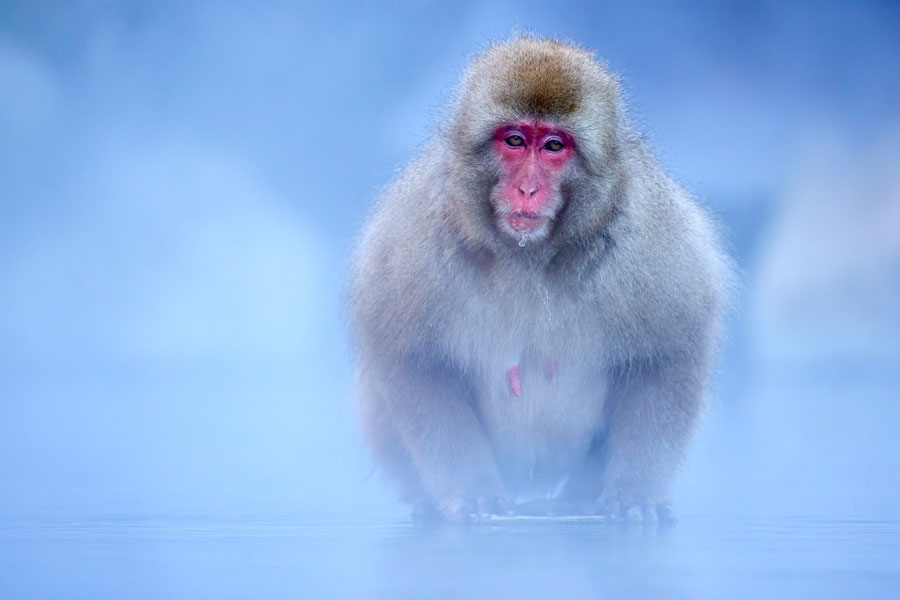
About the Author
Leo White has been a member of the Wex Photo Video team since 2018, working in a variety of roles ranging from the contact centre to the product setup team. With both a photography BA and MA, Leo has a wealth of knowledge he's ready to share.



